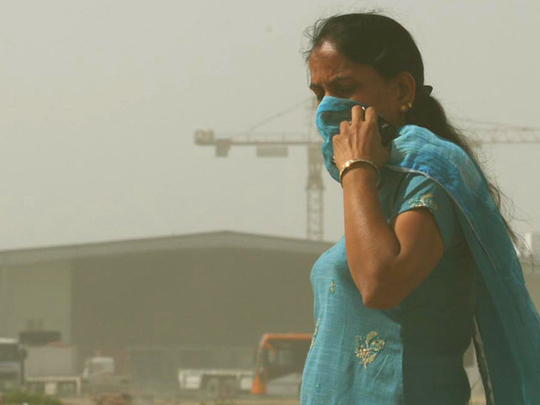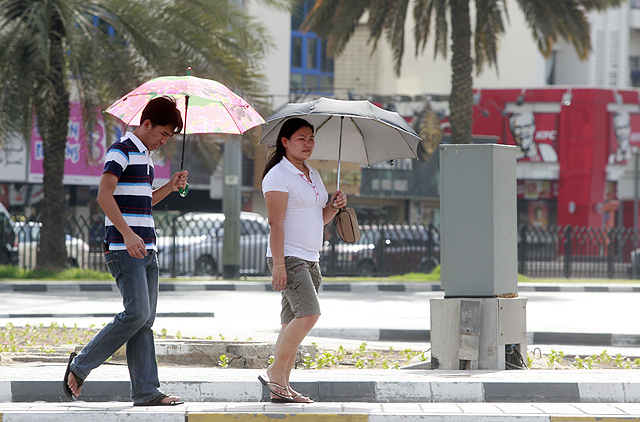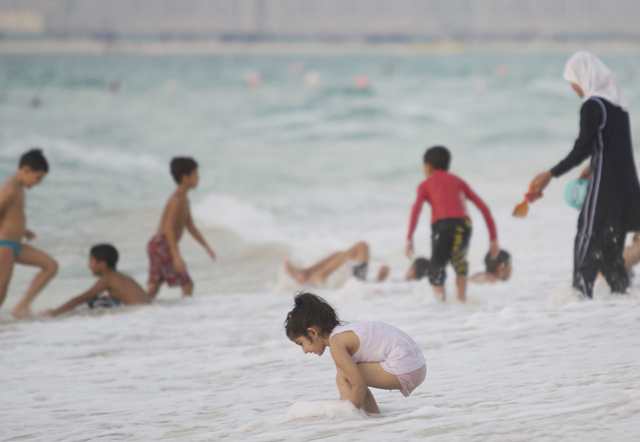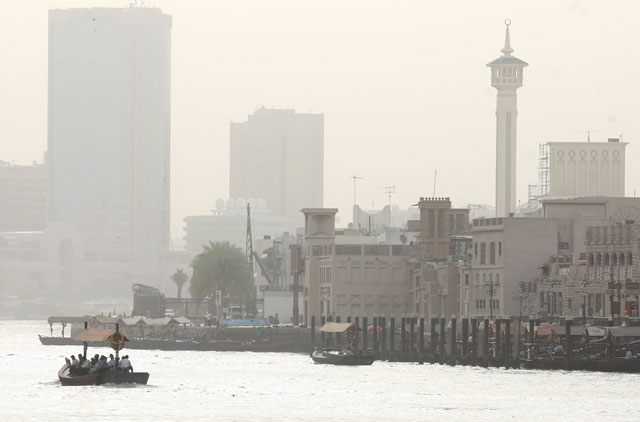
Manama: The heatwave gripping the Middle East has hospitalised labourers, broken down electricity substations, pushed power stations to their limits and caused lethal protests.
However, weathermen said that while people should take all precautionary measures, they should not panic and should learn to deal with the situation.
In the UAE, residents can expect a hotter than usual summer, aided by sizzling south-easterly winds.
Click here for weather around the world
Meteorological officials said the country will also experience an extended summer with the hottest months of June, July and August expected to record higher than mean average temperatures.
Weather data and information suggest a long spell of south-easterly winds across the UAE.
In Saudi Arabia, a local newspaper quoted a meteorologist, warning that temperatures could this week soar to 80 degrees Celsius in the sun in desert areas.
Dr Khalid Al Jama'an said that temperatures would also soar in cities. Officials said they were monitoring the rise in temperatures and denied allegations that meteorologists were not giving the true figures in order not to disrupt regular work.
"There is nothing to hide and we announce the temperatures as they are without changing them," Hussain Al Qah'tani, the head of meteorology in Riyadh, said. "The temperatures people record in their cars are affected by various factors."
In Qatar, car experts have been publicly offering tips for safe driving in the high temperatures affecting cooling systems, tyre pressure and batteries.
In Bahrain, officials from the Meteorology Directorate said the weather might have exceeded normal averages, but it should not be a source of concern.
"We had last week temperatures of more than 42C on a few occasions, but they quickly came back to under 40C thanks to shamaal, the northerly wind. When this wind blows, the weather is cooler," one official said.
"What we are witnessing today is a heatwave affecting the region, but people should not panic. The temperature today is 38C, down from 46C on Sunday," he said. "The northerly wind has helped bring it down and we hope that the weather will remain fine."
Salmaniya Medical Complex, the country's largest hospital, said it had received some cases of heat exhaustion.
In Oman, reports said that the highest temperature for the year so far has been 47.5C recorded on June 15 at Khasab, which neighbours Fujairah in the UAE. However, the country's record remains 51 degrees Celsius since May 31, 2009.
In Kuwait, lawmakers urged the government to shorten the summer working days by two hours and allow public sector employees to start the day 30 minutes earlier and go home at noon instead of 2.30 pm to help face the extreme conditions and alleviate pressure on electricity substations.
In neighbouring Iraq, angry protesters clashed with the police and hurled stones at provincial council offices amid growing rage over power rationing in the summer heat that allows Iraqis to receive power for only one hour in five in temperatures that have been topping 50 degrees Celsius.
How have you been affected by the heat wave? What ways have you done to cope with the summer heat? Send us your comments by clicking on the 'Post a comment' link below or click here to send us your photos















